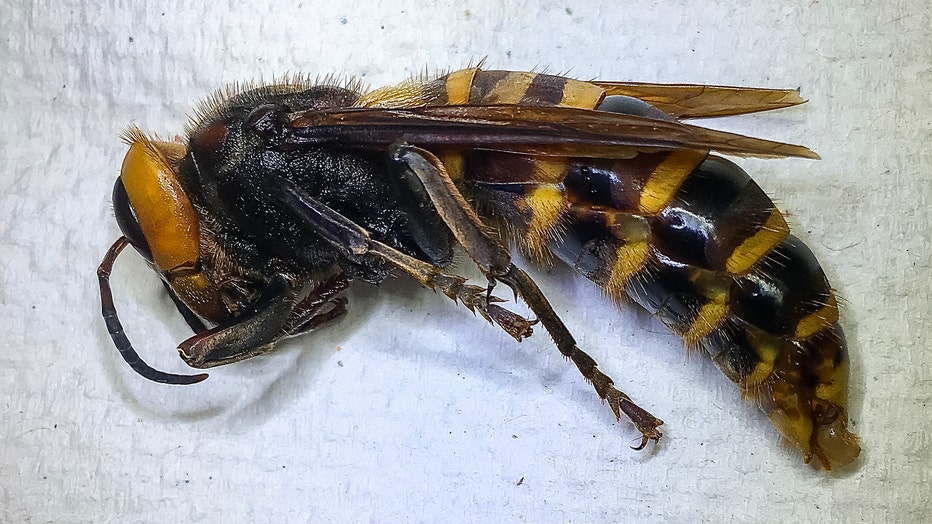WSU researchers say invasive Asian giant hornets could spread along the West Coast

Department of Agriculture captures male Asian giant hornet
Officials say additional research is underway on the first male Asian giant hornet captured in Washington.
PULLMAN, Wash. - Researchers have predicted that the Asian giant hornet, an invasive newcomer to the Pacific Northwest popularly dubbed the "murder hornet," will spread down much of the U.S. West Coast if it gains a foothold in Washington.
Sharing their discoveries in a newly published article in the Proceedings of the National Academy of Sciences, the Washington State University team found that the species could also find suitable habitat throughout the eastern seaboard and populous parts of Africa, Australia, Europe, and South America, if humans inadvertently transport it.
The team’s predictions underline the importance of Washington state’s efforts to stop the large insects before they spread.

Asian Giant Hornet photo courtesy Washington State Department of Agriculture
"We found many suitable climates in the U.S. and around the globe," said lead author Gengping Zhu, a postdoctoral scholar at WSU’s Department of Entomology.
Zhu and other scientists examined more than 200 records from the hornet’s native range in Japan, South Korea and Taiwan, then used a set of ecological models incorporating climate data to predict likely global habitat across six continents.
Scientists predicted that without containment, Asian giant hornets could spread into southern Washington and Oregon, and north through British Columbia. Calculating that hornets could fly up to 68 miles per year, their worst-case scenario found that the insects could disperse throughout the western regions of Washington and Oregon in 20 years or less.
RELATED: Washington state traps first 'invasive' Asian giant hornet
They cautioned, however, that these predictions are an educated guess.
"The information that we want—how fast and far queens can fly, and when they fly—is all unknown," Illan said. "A lot of basic biology is unknown."
Asian giant hornet is the world’s largest hornet and a predator of honey bees and other insects. A small group of Asian giant hornets can kill an entire honey bee hive in a matter of hours.
Washington state got its first report of Asian giant hornet last December from a resident near Blaine and later learned of another hornet in the area collected by Washington State University. These were the first-ever confirmed sightings of Asian giant hornet in the United States.
Although not typically aggressive toward humans, Asian giant hornets do pose a human health threat. Their sting is more dangerous than that of local bees and wasps and can cause severe pain, swelling, necrosis, and, in rare cases, even death.
The hornets are not known to bother people or pets, but they will attack if they feel threatened.
It is not known how they got here, but entomologists say the most likely cause if from a cargo ship between Asia and North America. WSDA is urging the public to report any sightings.

